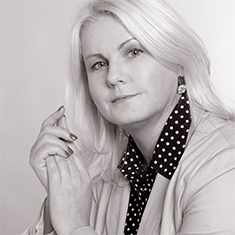Sleep medicine
A sleep doctor or somnologist deals with preventing, diagnosing and treating sleep-wake disorders and sleep disorders. The main reasons and problems for which a sleep doctor is consulted include insomnia, sleep-related breathing disorders, hypersomnia, circadian rhythm disorders, parasomnias and restless legs syndrome.
Sleep Study
Look for appointment timesA sleep study is conducted to diagnose sleep disorders and is scheduled at a sleep doctor’s appointment. A sleep study is therefore preceded by a consultation with a sleep doctor. During a home sleep study, a number of events occurring while the patient is sleeping are monitored synchronously.
The study is carried out using a special device. The home sleep study is prepared during a nurse’s appointment together with the patient.
During the sleep study, physiological indicators that help diagnose sleep disorders are monitored:
- heart activity, heart rate
- respiratory movements and airflow velocity in the airways
- the body’s oxygen supply
- the presence and volume of snoring
- changes in body posture and movement disturbances (on your back, stomach, right and left side)
- if necessary, sleep stages with electroencephalography (EEG), heart function with electrocardiography (ECG), muscle activity with electromyography (EMG) and any other indicators.
How the examination is performed
- A sleep nurse will show you how to use the sleep study device at home.
- Using special sensors, the device is attached to your body overnight.
- The study is painless and quiet. The device does not vibrate or otherwise disturb your sleep.
- In some cases, questionnaires are also used to investigate your sleep.
- You will need to return the device to the sleep nurse the day after the study.
- The sleep doctor will then examine the data, interpret the results and prepare a summary.
- The study is followed by a consultation with a sleep doctor, who will explain its results and the treatment options for the sleep disorder.
Symptoms and conditions for which the sleep study is recommended
- loud snoring
- fatigue or daytime sleepiness
- signs of disrupted breathing during sleep
- recurrent awakenings from sleep, restless sleep, waking up too early
- body mass index (BMI) over 35 kg/m²
- neck circumference greater than 43 cm for men or 40 cm for women
- the family doctor has identified a facial anomaly, meaning that the lower jaw is in a posterior position compared to the upper jaw
- history of hypertension treated with at least two different medications; history of myocardial infarction, cardiac arrhythmias, chronic heart failure, stroke
The doctor decides to send for the examination. A sleep study is available for an additional fee.
Service providers
We provide this service
Price
Sleep doctor (somnologist) consultation
We have several payment options. Read more HERE.
BOOKING
Sleep Study

